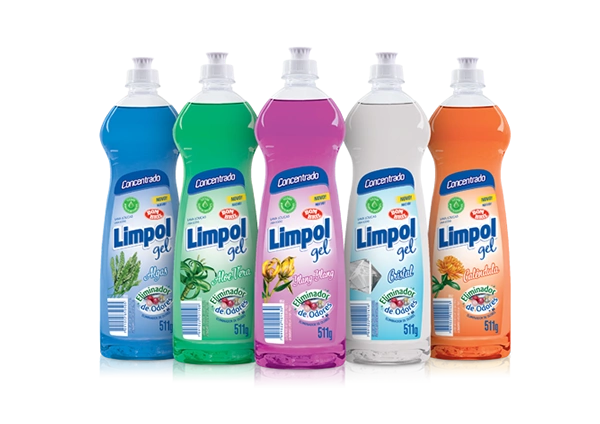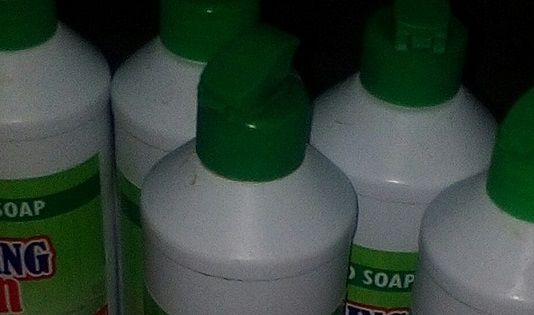How To Produce Laundry Soap In Nigeria
Do you want to produce your own laundry soap but you don’t know how to? Worry no more as this article covers how to make laundry soap in Nigeria and yes, it is relatively easy.
Also, soap making is a profitable business one can venture into because soaps are consumed daily by everyone for the purpose of cleansing.
👉 Relocate to Canada Today!
Live, Study and Work in Canada. No Payment is Required! Hurry Now click here to Apply >> Immigrate to CanadaLet’s get started!
Read Also: How to Produce Shampoo in Nigeria

What is Soap
Soap is the product of the reaction between alkali and fat/oil. The process of soap making is known as saponification.
Caution: Some materials that are used in making soap are corrosive and should be kept out of the reach of children.
Required Chemicals To Make Laundry Soap In Nigeria
Palm kernel oil (P.k.o): Fats/ oil are lipids and are the major component in soap making. P.k.o is a very good oil for making soap.
Caustic soda pearls (Sodium hydroxide): It is the commonly used alkali for soap making.
Soda ash: Soda ash in the dense form is better for this method of soap making. It helps to improve the soap.
Sodium sulphate: Sodium sulphate is known as an hardener or strengthener. It hardens the soap.
👉 Relocate to Canada Today!
Live, Study and Work in Canada. No Payment is Required! Hurry Now click here to Apply >> Immigrate to CanadaPerfume: Adding perfume to your soap is optional but it gives it an attractive smell if you do.
Water: Water is the solvent for this process
Colouring: As you have correctly guessed, it gives colour to the soap.
Sodium silicate: It is a shining agent in soap production. However, excess of it leads to production of a soap that dissolves too fast.
Kaolin: It is a fine clay rich in kaolinite used as an extender.
Read Also: 13 Steps to Produce Liquid Soup in Nigeria for Sale and Domestic Use
Equipments For Making Laundry Soap In Nigeria
1. Long overall to protect your dress from damage.
2. Stamp: The stamp is to inscribe logos or trademarks on the soap for identification or branding.
3. Hydrometer: It is used to measure the specific gravities or concentration of solutions which determine the quality of the soap you are making.
4. Nylon or small cartons: Nylon or small cartons are to package the soaps when they are ready for use or for sale.
5. A mixer (wooden): It is used to mix the mixtures.
6. A measuring scale: The measuring scale is to measure the correct quantity of chemicals to use.
7. A mould: The mould can be plastic, wooden or metallic. The liquid soap is poured here for it to solidify.
8. Hand gloves: The hand gloves are worn to protect your hands from corrosive chemicals like caustic soda pearls used in soap production.
9. Plastic buckets with covers(fermenting tanks): The plastic buckets are for fermenting soda ash and caustic soda.
10. Mixing tank: The mixing tank is the plastic container where the chemicals would be mixed together.
11. Cutting machine: It is used to cut the soap into desirable shapes and sizes. It can either be manual or electric.
Recipe For Laundry Soap Making On A Large Scale In Nigeria
a. You will need the measuring scale to weigh the chemicals.
b. Caustic soda 6 kilograms
c. Sodium sulphate 150 grams
d. Palm kernel oil 8 kilograms
e. Kaolin 125 grams
f. Soda ash 800 grams
g. Sodium silicate 200 grams
h. Colorant as desired
i. Perfume as desired
Read Also: How to Produce Vaseline in Commercial Quantities for Sale
Procedure
The procedure below should be followed to produce laundry soap on a large scale.
1. The caustic soda pearls, kaolin and 4 litres of water should be put into one of the plastic buckets according to the measurements in the recipe above.
Stir with the wooden mixer properly and cover for fermentation. Leave the mixture for 40 to 48 hours. After fermentation, the concentration should be around 1,275 when measured using the hydrometer.
2. The soda ash and sodium sulphate and 2.5 litres (2½ litres) should be put in the second plastic container according to the measurements in the recipe above. Stir properly and ferment for 24 hours. The concentration should be around 1,200
3. After fermentation for the caustic soda and soda ash is complete, heat the palm kernel oil with the heater, then add the colourant.
4. The heated oil should be removed and allowed to cool a bit.
5. Pour the heated oil into the mixing tank, add the caustic soda solution and mix vigorously and thoroughly.
6. Add the soda ash solution and continue to mix.
7. Gradually, add the sodium silicate now and mix properly.
8. Gradually, add the perfume and mix vigorously and thoroughly.
9. Pour the mixture into the mould and allow to solidify for about 4 to 5 hours
10. After solidification, cut, stamp and package your own soap.
Read Also: How to Produce Bleach in Nigeria
Household Recipe For Laundry Soap Making In Nigeria
You may only be interested in making a little quantity the first time you try. Personally, I would advise that you to start with this recipe to avoid incurring huge losses in case you do not get it right the first time.
a. Caustic soda 2 milk tins
b. Palm kernel oil 6 milk tins
c. Soda ash 1 milk tin
d. Kaolin 1/6 milk tin
e. Sodium sulphate ⅛milk tin
f. Sodium silicate ¼ milk tin
g. Colour as desired
h. Perfume as desired
Procedure
1. The caustic soda pearls, kaolin and 6 tins of water should be put into one of the plastic buckets according to the measurements in the recipe above.
2. Stir properly and cover for fermentation for 48 hours.
3. The soda ash and sodium sulphate and 4 cups of water should be put in the second plastic container according to the measurements in the recipe above. Stir properly and ferment for 24 hours.
4. After fermentation, heat the palm kernel oil and add your colourant, then stir.
5. Cool the oil a bit, then pour it into the mixing tank, add the caustic soda solution and stir properly.
6. Add the soda ash solution as the mixing goes on.
7. Gradually, add the sodium silicate and mix properly.
8. Gradually add the perfume and mix vigorously and thoroughly.
9. Stir the mixture for 5 minutes to allow all the chemicals blend properly
Read Also: How To Produce Disinfectants and Germicides like Izal
10. Pour the mixture into the mould and allow to solidify for about 4 to 5 hours
11. After solidification, remove the soap from the mounds and they are ready to be used.
12. Soap making is relatively easy and cost-effective as you can see now. Start making your soap, sell them and make a huge fortune!
